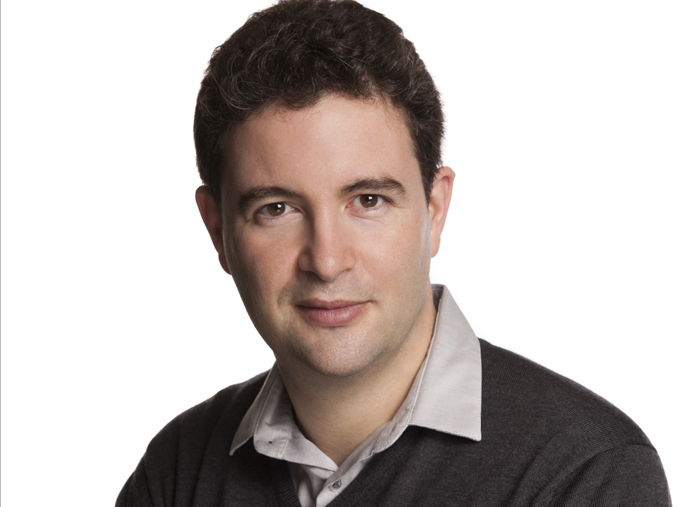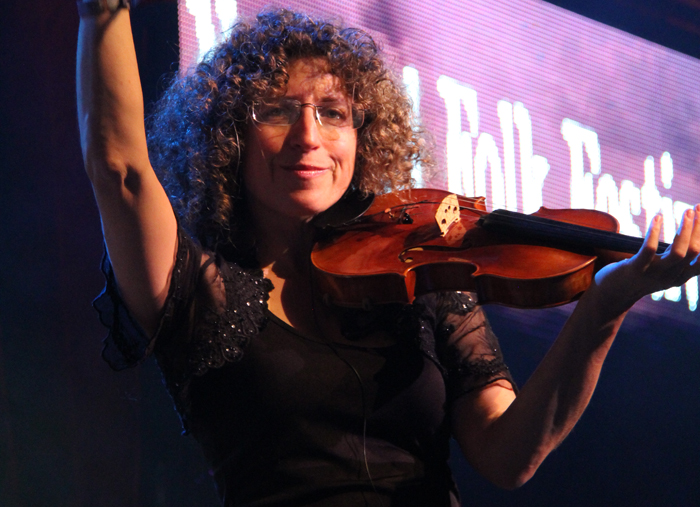 The millennium was a time of fireworks and celebrations, but it also marked a moment for Jewish music to benefit enormously. The Jewish Music Institute (JMI), in partnership with the music department at SOAS, was fortunate to win £240k from the Millennium Commission to give away in grants to enable individuals to achieve their dream projects in Jewish music. Fifteen years on, we can see how significantly awareness of Jewish music – and lives – were changed.
The millennium was a time of fireworks and celebrations, but it also marked a moment for Jewish music to benefit enormously. The Jewish Music Institute (JMI), in partnership with the music department at SOAS, was fortunate to win £240k from the Millennium Commission to give away in grants to enable individuals to achieve their dream projects in Jewish music. Fifteen years on, we can see how significantly awareness of Jewish music – and lives – were changed.
Exciting proposals flew in from across the country. The 63 successful candidates were paired with mentors and monitors to ensure fruitful outcomes. Each project needed an end product that would benefit a community. The money could be spent on travel, training, equipment, performances and publications to help attain their aims.
Awardees arranged choral festivals and conferences, produced CDs, wrote musicals, oratorios and even a novel. Concerts, cabarets and dance workshops were held in schools, concert halls and hospitals around the country and even in prisons. Subjects included Jewish jazz, medieval poetry, Torah chanting, Argentinean tango, Israeli piano music and even music originally suppressed by the Nazis.
Because of the experience, award winners went on to great success. Such as Meg Hamilton, a classically trained violinist who has become a key player in both Jewish classical and folk music; Michael Etherton now directs several Jewish Choirs; and Vivi Lachs went on to complete a PhD in London Yiddish songs and recently announced she is starting the London Yiddish Parade, which includes a marching band and Yiddish chorus.
Looking back over the many exciting programmes during my 28 years at the helm of JMI, I believe that this one has had the greatest impact. Not only did it introduce a wide range of Jewish music and culture to hundreds of people of all ages around the UK, but it allowed artists to flourish. Best of all it equipped and encouraged highly talented young men and women to take up a career in Jewish music, many of who are household names today as teachers and performers, holding prestigious positions in our institutions.
Benjamin Wolf
Conductor, pianist, singer and composer Benjamin Wolf acknowledges that it was the Millennium Award that steered him towards a career, not in the city or law, but in Jewish music. “The award to complete my piano concerto L’Chaim was a turning point for me”, he elaborates. “It was soon after I graduated from Oxford and without it I probably wouldn’t have pursued my interests in traditional Jewish melodies so thoroughly. There is no doubt that it helped me to obtain early jobs in Jewish music, and because of these, my interest in and knowledge of the subject has continued to develop.” Today Ben is the music director of London’s prestigious Zemel Choir and of Belsize Square Synagogue where he arranges music and connects for both the professional and community choirs. Ben has gone on to compose a cello concerto on Jewish themes and has orchestrated several pieces by Jewish composers. His orchestra, the Wallace Ensemble regularly performs concerts of Jewish music. He regularly runs Jewish choral workshops in London and arranges international choral festivals that bring together Jewish choirs from Berlin, Paris, Prague, Rome and Israel, amongst other places, to perform and work with his choirs in London. He has also set up his own Jewish a cappella quartet, bOYbershop.
Ilana Cravitz
Ilana Cravitz, like Ben Wolf, says the Millennium Award came at a very important stage in her musical journey. “It enabled me to study in America with some of the most prominent figures in the klezmer world, supported me in developing my research, teaching and networking skills, and provided a basis for me to implement ideas with willing participants.” Ilana, who set up and leads the outstanding London Klezmer Quartet, which has made several CDs and toured the UK, Europe and Australia, also runs Hopkeles (Yiddish dance parties) for organisations or individuals and arranges regular monthly klezmer workshops at a London pub. She adds: “Without the help of the award, I doubt that I would have been invited to write Klezmer Fiddle – A How-To Guide for Oxford University Press or become the professional klezmer performer and teacher that I am today.”
Louise Taylor
Louise Taylor hand-picked eight players to train weekly at JMI with legendary klezmer clarinettist Merlin Shepherd and the result was She'Koyokh. The klezmer ensemble are now one of Europe’s leading klezmer bands, playing concerts, festivals and Jewish ceremonies all over the world, and of course they have a special place to come back to and perform at JMI’s Klezmer in the Park every summer. The group’s clarinettist, Susi Evans (pictured), explains how fundamental the award was to her career: “At the time I was a student at the Royal Academy of Music training for a future in classical music, so my teachers were not at all keen. I’m sure I was the first student in the Academy’s history to perform with an eight-piece klezmer band in my final recital. Happily, the examiners loved it. I learned how to play by ear and improvise and have gone on to study other Eastern European styles, leading to theatre work, session work and performing with the Jocelyn Pook Ensemble and the London Klezmer Quartet. I’ve run klezmer workshops as far afield as Australia and taught on the faculty at JMI Klezfest 2015. Studying klezmer with the award has empowered me greatly as a musician.”
Sophie Solomon (pictured above)
Sophie Solomon, who co-founded fusion group Oi-Va-Voi while studying at Oxford, won funding to make The HipHopKhasene – a CD of music that reimagines a Yiddish wedding in a hip-hop style, including Yiddish freestyle rapping. She told us that the Millennium Award was a "pivotal moment" in her career. "It enabled me to develop as an artist and a producer and to work with the some of the most celebrated names in the Yiddish music revival. It funded this hip-hop album, which afterwards won an award, and also sparked off a real-life hip-hop Jewish wedding where we all performed in a whisky distillery in Toronto complete with rapping Badkhn (comedian).” Sophie subsequently formed a solo band, which recorded for Decca Records, and she has composed music for the National Theatre. Sophie is now the esteemed artistic director of JMI where she is taking the organisation to exciting new heights. She has commissioned new works and initiated stimulating Jewish music education programmes in schools. She continues to expand the annual JMI Klezmer in the Park festival each September in Regent's Park and, while preserving and enhancing JMI’s summer schools in Yiddish language and song, she has revived the JMI KlezFest training programme in London. Both Sophie and Jennifer Jankel, the current JMI chairman, hope that the Jewish Music Institute’s current creative programming will continue to inspire future careers in Jewish music.
By Geraldine Auerbach




